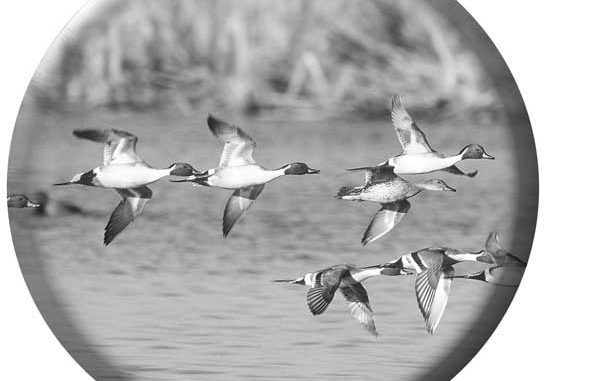
Getting started in the incredible sport of duck hunting? Here’s everything you need to know.
There’s a certain smell that the rest of the world finds repulsive, but to a duck hunter it’s sweeter than a spring orchid.
It’s caused when a rapidly spinning propeller interacts with underwater muck in skinny-water marshes and swamps. The action of the prop forces the mud to release tiny pockets of methane that are the fruit of centuries of decay.The resulting aroma is unmistakable, and smells like nothing that people talk about in mixed company.
Repulsive? Perhaps to some, but to a duck hunter it’s sheer ecstasy. Surely heaven itself smells this way.
Biologists say none of our four other senses trigger memory to the degree that our sense of smell does.
A duck hunter in the marsh on opening day who gets hit with a whiff of “swamp gas” is instantly transported to hunts of yesteryear…..
There was the hunt when his son, who had missed several easy shots for weeks, finally downed his first bird, a gadwall, on a tough, quartering-away shot.
Then there was the time when the hunter had as his only companion his long-since-deceased but most-faithful dog Bo. It may have been his best hunt ever, as wave after wave of mallards flocked into his pothole. No other hunters seemed to be on the planet. It was just him and Bo, who retrieved like a champ. The day ended with a limit in the blind, an unloaded gun and the hunter continuing to call in the ducks, just to enjoy their majesty. Quizzical looks from Bo followed each flushing flight. “Why don’t you shoot them, Master?” he surely wanted to say.
Then there was another time, much longer ago, when the hunter’s father, a rugged man with a tender heart, first let his son peer through the canes surrounding the blind and watch a flight of widgeon and grey ducks working into the decoys. His dad would trade quacks and whistles as the birds circled and circled for what seemed like hours. Then, Dad finally had them convinced. The sight of the flock, in one accord and each one locked-up, was the most beautiful sight the burgeoning hunter had ever seen.
Even to this day, the hunter’s certain he duck-hunts for one reason — to feel the incomparable stirring in his soul that accompanies the sight of ducks with their wings locked, coasting into a decoy spread.
It makes getting up at 3 a.m. worth it. It makes toting a sack with three dozen decoys worth it. It makes spending $12 on a box of shells worth it. It makes trudging through boot-sucking swamps worth it. It makes a breakfast of Ding Dongs worth it. It makes suffering through frozen extremities worth it.
And the memories are all brought back with a smell. Hunt ducks, and you’ll understand.
If you can’t relate, just turn the page and forget all about duck hunting. You don’t want to get started.
It’s a sport that only allows you to partake during 16 percent of the year — and that’s when the season is at its longest — but it grips you even during the other 84 percent.
It’s a sport that causes October to seem like the longest month of the year.
It’s a sport that’ll make your wife feel like a widow during the entire month of December.
It’s a sport that gets into your blood like an illicit narcotic.
It’s a sport that is entirely unlike any other. It’s wonderful.
If you’re a beginner, this guide will get you introduced to the finer points of duck hunting — if you dare venture there. If you’re a veteran, who knows — you may learn something you didn’t know.
Decoys work best when you place them right
Ducks are not very efficient flyers.
Consider the eagle, how it glides gracefully on wings as wide as a small plane. It flaps its wings only when necessary, and each beat displaces enough air to propel the majestic bird several yards through the sky.
Now consider the duck. Its aerodynamic body soars through the air like a rocket, but its short wings must flap constantly to keep its large mass airborne. If a duck stops flapping or otherwise loses its air speed, it’s headed for the ground.
This fact is important for a duck hunter to realize. It explains why ducks light almost exclusively into the wind.
If a duck were approaching a particular pond from upwind, it would have to maintain such a high rate of speed to stay airborne to even reach the pond that it would be traveling too quickly to land safely.
A duck approaching from downwind, however, can lock its wings, slow its forward speed and begin a safe descent. The duck uses the wind to help maintain air speed, even though its speed relative to the ground is decreasing.
Like most hunters, Mike Smith, a guide in the Delacroix and Reggio areas, knows this. As such, he constructs several blinds in the areas he hunts so that he always has an option with the wind out of any direction. He won’t hunt a blind that’s got the wind blowing toward it.
Smith’s favorite wind is one that’s blowing from the back of the blind to the front of the blind. Under this scenario, he places a big spread of decoys to the right and left of the blind with a large hole directly in front of the blind.
But Smith also has great success hunting crosswinds. Whenever the wind’s got any significant angle from the blind he’s hunting, Smith employs a hook setup.
He places a large group of decoys upwind and has a string of decoys coming out of the group heading downwind in sort of a hook shape.
“The ducks ride up that hook and try to light right in front of the group,” he said.
Smith said these two setups are essentially all he ever employs, adding that he’ll use 150 decoys on large ponds and 30-35 on small ponds. He considers a small pond to be about an acre.
In recent years, Smith has found great success with the increasingly popular motion decoys.
“When I first saw them, I thought it was a scam,” he said. “But, boy, those things are incredible.”
Smith said the motion decoys are most effective on calm days, which is when ducks seem to be most wary.
“They see that motion, and they’ll lock up 400, 500 yards away,” he said.
These mechanical decoys are expensive, but Smith said he only uses two per decoy spread.


